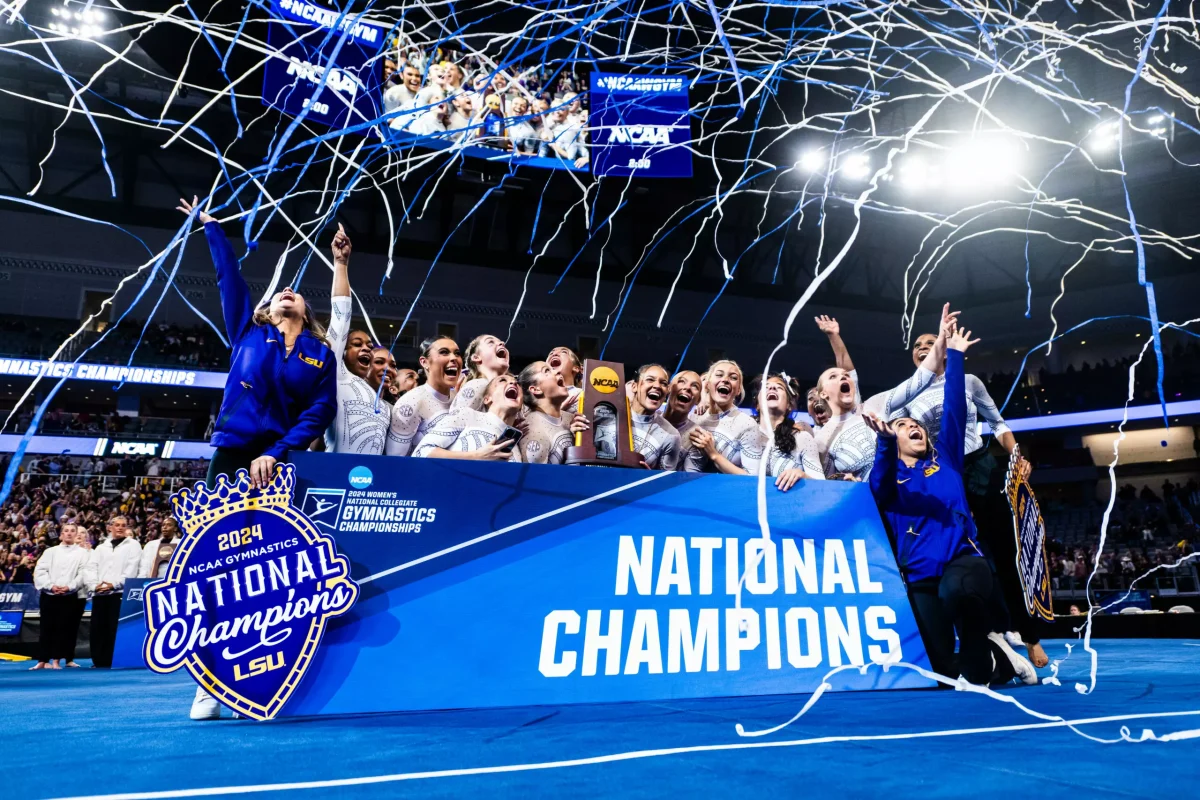Kathryn Chambers’ Battles on the Fencing Strip and in the Mind
“Kathryn is pretty chill at home,” said Amy Chambers, mother of sophomore Kathryn Chambers. “But as soon as she lowers that mask, it’s game on. She’s all business on the fencing strip, but last week when she won a long, hard-fought bout, she threw her mask off with the biggest smile I’ve ever seen.”
Fencer Kathryn Chambers not only fights with a foil but also a mental battle while on the fencing strip. Kathryn has been fencing for around five years, and she has no plans of stopping soon.
Kathryn had an interesting start to her fencing career. A member of her family won a trial fencing lesson from her grandma’s boyfriend’s church and give it to her. She didn’t expect to fall in love with the sport after her first lesson, but her interest immediately peaked.
Kathryn currently fences at Grand Rapids Fencing Academy (known to other fencers as GRAFA). Fencing at GRAFA is a large time commitment, and Kathryn can spend up 19 hours at GRAFA in one week; including weekday trainings four times a week and tournaments on the weekend.
GRAFA gives a unique experience to fencers. At one point in time, GRAFA was the largest fencing academy in Michigan. They have been named as one of the four “Best Fencing Clubs” in the state of Michigan. The coaching staff there adds to the greatness of the facility and makes GRAFA an incredible facility. Sophomore Payton Bidwell, who fences alongside Kathryn, has her coaches to thank for her development as a person and athlete.
“[In times of a hardship,] my coaches [help me] try to get better,” Payton said.
The amount of time Kathryn puts into fencing requires her to make sacrifices some teens would not ever dream of.
“I’ve missed out on a lot,” Kathryn said. “For my last few birthdays for the last four years, I have always [have attended] a fencing camp. So, I’ll have been fencing for eight or nine hours and then I come home and sleep on my birthday, so I haven’t really gotten anything fun to do on birthdays.”
However, her time working to be the best fencer she can be has paid off. Kathryn has frequently trained with the Notre Dame coach and hopes to get a scholarship there. However, she is unsure of her current plans because recruitment is not allowed until her junior year. Kathryn is training with an Olympic coach this winter at GRAFA. New challenges face Kathryn as she rises to the occasion and perfects her skill set.
“[Training with an Olympic coach,] is a super huge opportunity,” Kathryn said. “[It happens] once in a lifetime.”
On top of training with an Olympic coach, recently, Kathryn qualified for the Junior Olympics. Later this winter, she is going to compete in Kansas City. She is competing from February 17th to the 20th. The qualification process was nerve wracking, but the mental challenge proved worthwhile.
“You have to be in the top three,” Kathryn said. “I placed 2nd and I’m super excited [to see what I can accomplish].”
The small amount of people involved with fencing in West Michigan causes tensions to rise between fencers. Not only does Kathryn have to fence people from her academy in tournaments, they also compete for scholarships and other positions.
“It turns into a really competitive opportunity.” Kathryn said. “A lot of kids want to pursue it in careers or for colleges, so if you make the world team you can usually get a full ride somewhere.”
Payton agrees that the competition can be nerve wracking, but the two of them can both handle a little competitive push. Payton describes her and Kathryn’s relationship at fencing as a “back and forth.”
“It’s hard because we’re friends and we don’t want to make the other one lose,” Payton said. “But it happens. At local tournaments [we fence] almost every time.”
“That’s why I do it: to help me better myself.”
— Kathryn Chambers
Fencers always need a leg up on their competition, and at the end of the day, more than skill is required to win. Mentality is a crucial part of fencing, and this is partially because the competition of an individual sport forces athletes to push themselves and recover from mental blocks in an independent manner.
“I’ve learned how mentally tough she is,” Chambers said. “She never gives up, even when on the fencing strip with more experienced fencers.”
Because fencing is an individual sport, Kathryn claims a key to pushing herself is learning to deal with mental blocks. This factor has helped her become the champion she is today. She doesn’t just learn how to fence, she learns how to strengthen her mind at her trainings. The lessons she learns at fencing apply to her daily life and help her succeed in her many doings.
Kathryn’s desire for success is found at the GRAFA. Kathryn has high goals and expectations for this upcoming year. Kathryn is currently taking Honors English and French 3. On top of juggling school work, Kathryn is also a member of the debate team, GIDAS club, and FHC Women’s Chorus. Some may see it as too much for one person to handle, but in her eyes, this is just what she loves to do. She has to stay focused to reach all of her goals, and that is when the mental toughness of fencing translates to her day to day life.
“[I want to] do my best in everything,” Kathryn said. “ [I need to] do my best in school, do my best in fencing, and really succeed and move forward. This is the year when I want to get it together.”
Fencing has impacted Kathryn’s life in monumental ways. No matter how long her fencing career lasts, she will forever be able to look at the valuable lessons fencing has taught her.
“I love it so much,” Kathryn said. “I really want a bright future, and fencing will help me get there. That’s why I do it: to help me better myself.”

Sarah is a senior entering her second year writing on staff for The Central Trend. Sarah thinks her enthusiasm for writing sprouted from her love for reading...

























































































